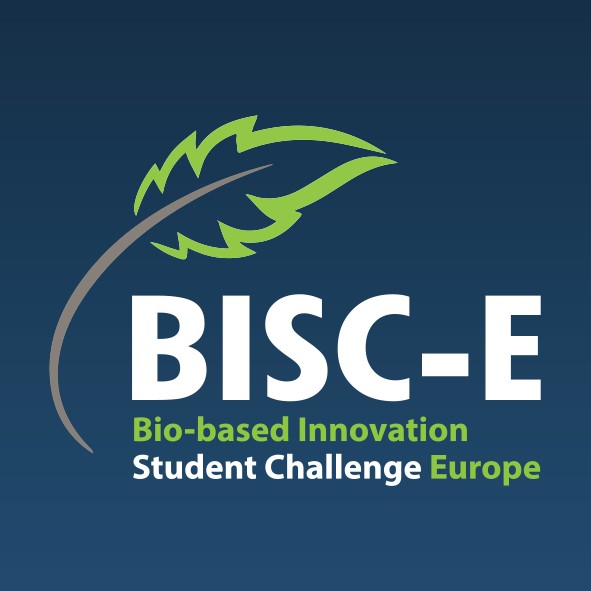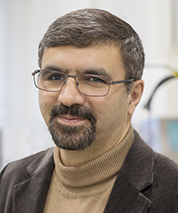Bio-based Innovation Student Challenge Europe (BISC-E)
Aim

The Bio-based Innovation Student Challenge – Europe (BISC-E) aims at stimulating entrepreneurship in bio-based industrial sectors (the ‘bio-based economy’), through curricula at educational institutions at all levels. Through its execution, BISC-E provides opportunities to students with entrepreneurial mindset to put their talent to work and benefit from the process.
BISC-E challenges graduating students at universities of Applied Sciences and at research universities to propose innovative bio-based solutions to issues regarding the environment, economy, or society. These solutions should realise net-zero greenhouse gases emissions, zero pollution, protection and enhancement of biodiversity and environmental sustainability in general to contribute to a sustainable and circular economy.
Participation
- Develop an innovative bio-based product or process to help resolve technological, environmental, or societal challenges that could become part of the bio-based industry and the bioeconomy.
- Build your business case in a interdisciplinary student team.
- Present its benefits and your entrepreneurship to experts from industry and academia. The experts will judge your business case on technological excellence, sustainability and environmental performance, and economic feasibility.
- Use visuals during your pitch (PowerPoint or any other application).
The target countries for student team participation are the EU member states and the countries associated to the European framework programmes.
Teams of 3–6 students enrolled in a programme (Bachelor level, Master level or first-second year of doctoral student level) at an institute for higher education are welcome to participate.
For doctoral students the following applies: The teams can include students in the first 1-2 years PhD curricula, provided their current level is comparable/identical to others within the European Qualification Framework (EQF), and the overarching framework of qualifications of the European Higher Education Area (QF-EHEA).
For MSc students the following applies: Individual work, done in the framework of a MSc-thesis, is not eligible for this programme. Further development of a subject/theme as part of such a thesis in a participating team is eligible, provided it is a clear team effort.
It is highly advisable that the teams include students enrolled in curricula in different disciplines. STEM (science, technology, engineering, and mathematics) disciplines are a must in any student team, but other disciplines (e.g.,education, arts, etc.) are also welcome.
Team members can be enrolled at different universities. There is no limitation to supporting the team by industry experts. Industry’s guidance/mentoring of the team is more than welcome!
Participation is free of charge.
Benefits to students
BISC-E will offer student opportunities to interact with actors in the bio-based industry throughout Europe. This can be done during preparation of business cases. This interaction can possibly lead to further relationships between students and the industry.
BISC-E competition prizes of the European final
First place: 5000 EUR prize award
- 1-year free BIC ‘Full Member’ membership. This includes access to the full network of industry members, and involvement in the content planning for the partnership between BIC and the European Commission (Circular Bio-based Europe Joint Undertaking)
- Winning team and its project taken up in BIC’s newsletter and on BIC’s website; this offers the opportunity to update progress of the project and attract further attention
- Articles on the winning team and its project in international media that BIC work with. This will provide exposure to the broad bio-based sector and the European Commission
- Guided support by BIC staff during membership
Second place: 2500 EUR prize award
Third place: 1000 EUR prize award
Important dates
31 January, 2024: Register your team and supervisor for the National competition (Sweden) in the form below.
31 January, 2024: Confirm team and participation by
e-mail to the National competition coordinator (see below).
15 March, 2024: Final date to submit the competition business case and supporting documents (dossier) to the National Coordinator (see below).
15 May 2024: National competition final.
15 July, 2024: Final date for National winners dossier to get to BISC-E for the European round (will be sent by the National Coordinator).
27 September, 2024: European final
Read more about the competition
Full competition regulations (pdf)
Read more about the competition, guidelines, and get inspiration from the previous competition
BIC involvement
BIC provides a central role in mobilising country participation, acting as contact point for the BISC-E coordinating organisation and financing and co-organising the European finals where the top student teams compete. BIC also funds the prize awards and provides additional benefits to the winning team (see below).

National Coordinator – Sweden
Professor Mohammad Taherzadeh, University of Borås
Photo: Adobestock
Portrait photo: Suss Wilén


